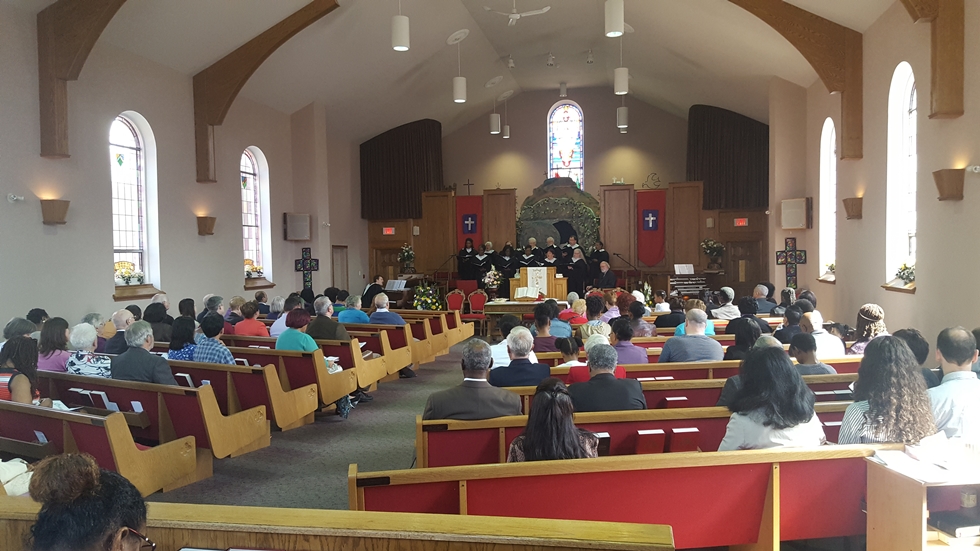Prayer and the Kingdom of God
“When he opened the seventh seal, there was silence in heaven for about half an hour. And I saw the seven angels who stand before God and to them were given seven trumpets. Another angel, who had a golden censer, came and stood at the altar. He was given much incense to offer, with the prayers of the saints, on the golden altar before the throne. The smoke of the incense, together with the prayers of the saints, went up before God from the angel’s hand. Then the angel took the censer, filled it with fire from the altar, and hurled it on the earth; and there came peals of thunder, rumblings, flashes of lightning and an earthquake.”
Revelation 8:1-5
As the visions in the book of Revelation unfold we are introduced to a profound mystery. What John “sees” repeatedly calls him to prayer. What the Sovereign God does seems to come about in response to the prayers of the saints. In fact it seems as if nothing happens without the praying of God’s people. George Beasley Murray writes in his commentary entitled The Book of Revelation (Grand Rapids: Mich., Eerdmans, 1981, page 151).
“The significance of this picture can hardly be overestimated. No one was more aware than John of the limitations to what individual men and women can do to change the course of history and to bring in the kingdom of heaven, particularly in the face of the cosmic forces against them and the transcendent character of the kingdom itself (none of us can raise the dead). But we can pray to Him who has almighty power, and it would seem that God has willed that the prayer of His people should be part of the process by which the kingdom comes. The interaction between the sovereignty of God and the prayers of the saints is part of the ultimate mystery of existence. Faith is called on to take both seriously.”
We face the mystery of life as weak and broken people. We are sinners, desperately needing redemption in Christ. This weakness, when acknowledged, opens us up to become recipients of the power of God which was at work in the cross and resurrection of Christ. This power is not our own, it is God’s power at work in us through Christ crucified. It must be asked for in faith. Beasley Murray calls us to recognise our weakness, and then to come to God in humble prayer asking for God’s power to be at work in us.
Jacques Ellul puts it even more strongly in his Prayer and the Modern Man (New York: Seabury Press, 1970, page 167).
“The Christian who prays acts more effectively and more decisively on society than the person who is politically involved, with all of the sincerity of faith put into the involvement. It is not a matter of seeing them in opposition to one another, but of inverting our instinctive, cultural hierarchy of values.”
Each of these scholars are in their own way calling the Church to sincere, committed, prayer as the means by which society will be transformed. Our belief must be that prayer is one of our primary tools that we use in the advancement of God’s kingdom. It not something that we tack on to the end of our meetings, and our days, after all the important work is done. It is our calling. The Apostles in Acts 6:4 declare that they will give themselves to prayer and the ministry of the Word. The mystery contained in the whole of Scripture is that God has willed this. How often, in His Word, do we see God acting in response to His people crying out to Him?
If we want to see our friends and neighbours come to Christ, our Church growing deep in the Word of God, our cities, nations, and world transformed by God’s grace then we must pray. We must ask for God to create in us a desire for prayer. We must also ask that He teach us how to really pray. We have much to learn here. James confronts us on our prayerlessness when he writes, “You do not have, because you do not ask God. When you ask, you do not receive, because you ask with wrong motives, that you may spend what you get on your pleasure.” (James 4:2b-3) Here there is a call to prayer as well as a promise of sanctification that will take place as we pray.
John introduces us to the mystery. God’s kingdom unfolds on the knees of His people. Make no mistake, He is firmly, and sovereignly in control of all things. He has willed that we prayerfully advance His work. I know that for me this is a call that must be seriously embraced. How about for you?
